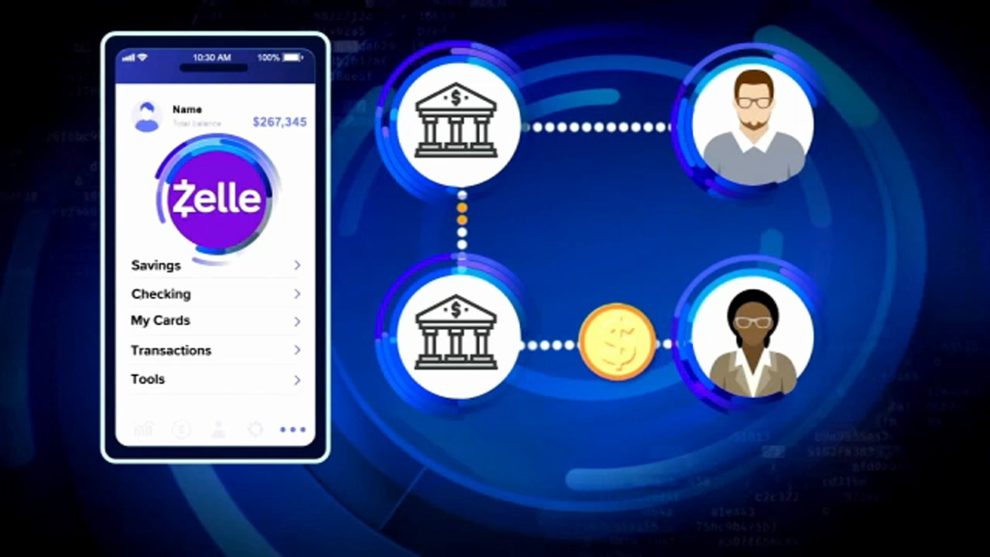Zelle has emerged as a popular platform for quick and easy money transfers. However, this convenience has also made it a prime target for scammers looking to exploit unsuspecting users. As reports of Zelle-related fraud continue to surge, it’s crucial for consumers to arm themselves with knowledge about the most common scams and learn how to protect their hard-earned money.
The Rising Tide of Zelle Fraud
Zelle, a peer-to-peer payment service backed by major U.S. banks, has seen exponential growth since its launch in 2017. With over 1,700 financial institutions participating and billions of dollars transferred annually, it’s no wonder that fraudsters have set their sights on this digital goldmine.
According to recent data from the Federal Trade Commission (FTC), Zelle-related scams have increased by a staggering 86% in the past year alone. This alarming trend has left many consumers vulnerable and financial institutions scrambling to enhance security measures.
Sarah Thompson, a cybersecurity expert at Digital Shield Institute, warns, “The ease and speed of Zelle transactions make it an attractive target for scammers. Once the money is sent, it’s often impossible to recover, leaving victims with empty bank accounts and little recourse.
Let’s delve into the seven most common Zelle scams currently plaguing users across the nation, along with expert advice on how to avoid falling victim to these insidious schemes.
1. The Impersonation Scam: Wolves in Digital Clothing
The Scam: Fraudsters pose as representatives from banks, government agencies, or even Zelle itself. They contact victims through phone calls, emails, or text messages, claiming there’s an urgent issue with their account that requires immediate action.
How It Works: The scammer convinces the victim to send money via Zelle to a “safe” account or to provide login credentials to “verify” their identity. Once the transfer is made or the information is shared, the scammer gains control of the victim’s account.
Prevention Tips:
- Never share login credentials or one-time passcodes with anyone, even if they claim to be from your bank.
- Be wary of unsolicited calls or messages, especially those creating a sense of urgency.
- Verify the authenticity of requests by contacting your bank directly using official channels.
John Davis, a former FBI cybercrime investigator, advises, “Banks will never ask you to transfer money to a different account for security reasons. If you receive such a request, it’s almost certainly a scam.”
2. The Fake Seller Scam: Phantom Goods and Empty Promises
The Scam: Scammers list non-existent items for sale on marketplace platforms or social media at attractive prices. They insist on using Zelle for payment, citing its speed and security.
How It Works: Once the unsuspecting buyer sends payment via Zelle, the seller disappears, leaving the victim with no product and no way to recover their money.
Prevention Tips:
- Use Zelle only with people you know and trust.
- Be cautious of deals that seem too good to be true.
- Research sellers thoroughly and look for reviews or ratings from previous buyers.
Emily Chen, a consumer protection advocate, notes, “Zelle should be treated like cash. Once you send money, it’s gone. Always verify the legitimacy of a seller before making any payments.”
3. The Romance Scam: Heartbreak and Empty Bank Accounts
The Scam: Fraudsters create fake profiles on dating sites or social media platforms, building emotional connections with their victims over time.
How It Works: After establishing trust, the scammer invents a crisis or opportunity that requires immediate financial assistance. They persuade the victim to send money via Zelle, often in multiple transactions.
Prevention Tips:
- Be cautious of online relationships that progress quickly.
- Never send money to someone you haven’t met in person.
- Be skeptical of sob stories or requests for financial help, no matter how convincing they may seem.
Dr. Lisa Park, a psychologist specializing in online behavior, warns, “Romance scammers are master manipulators who prey on emotional vulnerabilities. Always maintain a healthy skepticism in online relationships, especially when money is involved.”
4. The Overpayment Scam: A Check That Doesn’t Check Out
The Scam: This scheme often targets individuals selling items online. The scammer offers to pay more than the asking price, usually with a check, and requests that the excess amount be returned via Zelle.
How It Works: The initial check bounces after the victim has already sent the “overpayment” back through Zelle. The victim loses both the item they were selling and the money they refunded.
Prevention Tips:
- Never accept overpayments for items you’re selling.
- Wait for checks to fully clear before sending any money or goods.
- Be wary of buyers insisting on complicated payment arrangements.
Michael Roberts, a fraud prevention specialist at SecureBank, advises, “If a buyer offers more than you’re asking, it’s almost always a red flag. Legitimate buyers have no reason to overpay.”
5. The Job Offer Scam: Employment Opportunities That Cost You
The Scam: Scammers post fake job listings or send unsolicited job offers, often for remote work or easy money-making opportunities.
How It Works: The “employer” sends a large check for supplies or equipment and asks the victim to send a portion back via Zelle. The initial check bounces, leaving the victim responsible for the Zelle transfer.
Prevention Tips:
- Research companies thoroughly before accepting job offers.
- Be skeptical of jobs that require you to use your personal bank account for business transactions.
- Never send money back to an employer, especially via peer-to-peer payment platforms.
Career coach Amanda Johnson warns, “Legitimate employers will never ask you to send money as part of the hiring process. If you’re asked to do so, it’s a clear sign of a scam.”
6. The Rental Scam: Houses of Cards
The Scam: Fraudsters list fake rental properties online, often at below-market rates to attract potential victims.
How It Works: The scammer claims high demand for the property and pressures the victim to send a deposit or first month’s rent via Zelle to secure the rental. Once paid, the scammer disappears, and the victim discovers the property doesn’t exist or isn’t for rent.
Prevention Tips:
- Always view properties in person before sending any money.
- Be wary of landlords who can’t meet in person or show the property.
- Use secure payment methods and avoid peer-to-peer transfers for rental transactions.
Real estate attorney Sarah Goldstein advises, “Never send money for a rental property you haven’t seen in person. Legitimate landlords understand the need for proper documentation and secure payment methods.”
7. The Charity Scam: Preying on Generosity
The Scam: Scammers set up fake charities or impersonate legitimate ones, especially following natural disasters or during holiday seasons.
How It Works: The fraudster solicits donations via Zelle, playing on people’s emotions and desire to help others in need.
Prevention Tips:
- Verify the legitimacy of charities through official websites like Charity Navigator or GuideStar.
- Be cautious of charities that only accept donations through peer-to-peer payment platforms.
- Don’t let emotional appeals cloud your judgment; take time to research before donating.
Nonprofit consultant Mark Thompson warns, “Legitimate charities will never pressure you for immediate donations via platforms like Zelle. Always take the time to verify before you give.”
Protecting Yourself in the Digital Age
As Zelle and other peer-to-peer payment platforms continue to grow in popularity, it’s crucial for users to remain vigilant and educated about potential scams. Here are some overarching tips to keep your money safe:
- Use Zelle only with trusted contacts: Limit your Zelle transactions to friends, family, and established businesses you know and trust.
- Verify, verify, verify: Always double-check the recipient’s information before sending money. A simple typo could result in funds being sent to the wrong person.
- Enable all security features: Use two-factor authentication, biometric locks, and transaction notifications to enhance your account security.
- Educate yourself: Stay informed about the latest scams and fraud tactics by regularly checking resources from your bank and consumer protection agencies.
- Trust your instincts: If something feels off about a transaction or request, it probably is. Don’t let pressure or emotion override your better judgment.
- Report suspicious activity: If you suspect you’ve been targeted by a scam, report it immediately to your bank, Zelle, and the FTC.
As Zelle scams continue to evolve and proliferate, both financial institutions and regulators are facing increasing pressure to enhance consumer protections. Several major banks have recently announced plans to implement additional security measures, including transaction delays for new recipients and enhanced fraud detection algorithms.
Consumer advocacy groups are calling for stronger regulations and clearer liability frameworks for peer-to-peer payment platforms. “The current system often leaves victims of fraud with little recourse,” says consumer rights attorney Lauren Thompson. We need robust legislation that holds both banks and payment platforms accountable for protecting users.
As the battle against Zelle scams rages on, the most powerful weapon in a consumer’s arsenal remains education and vigilance. By staying informed about common scams and following best practices for digital payments, users can significantly reduce their risk of falling victim to these sophisticated fraud schemes.
In the ever-evolving landscape of digital finance, the old adage holds truer than ever: if it seems too good to be true, it probably is. Stay alert, stay informed, and keep your hard-earned money where it belongs – safely in your own account.
















Add Comment